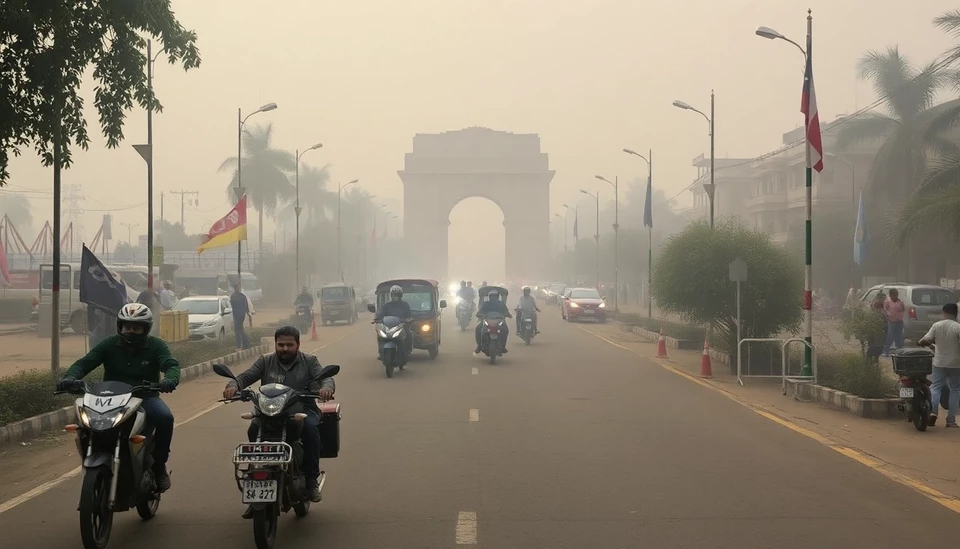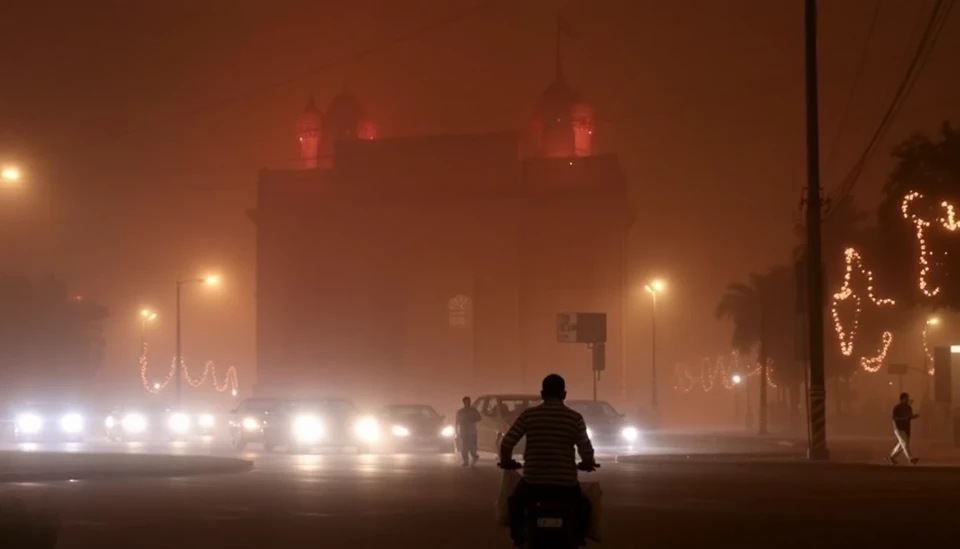
In a startling revelation, air quality levels in the Indian capital, Delhi, have soared to more than 17 times the safe limits recommended by the World Health Organization (WHO). This alarming spike, occurring during the critical winter months, has raised concerns among health officials and residents alike, as the city grapples with one of the worst air quality crises in its history.
The National Air Quality Index (NAQI) recorded hazardous levels of particulate matter, particularly PM2.5, on November 17, 2024. This tiny particulate matter can penetrate deep into the lungs and even enter the bloodstream, posing severe health risks, especially to vulnerable populations such as children and the elderly. Residents have been advised to limit outdoor activities, while health experts anticipate a surge in respiratory ailments and other pollution-related illnesses.
Authorities are scrambling to find effective solutions to combat the ever-worsening air quality. The Delhi government has reactivated its winter pollution mitigation plans, which include banning construction activities, promoting public transport, and distributing masks to residents. However, these measures have met with mixed responses, and many citizens feel that they are merely temporary fixes rather than long-term solutions.
The rising levels of pollution are attributed to a multitude of factors, including increased vehicular emissions, industrial discharge, and the burning of crop residue in neighboring states. As temperatures drop, the winter inversion traps pollutants close to the ground, exacerbating the situation. Environmental analysts emphasize the need for a comprehensive approach that goes beyond emergency measures to address the root causes of air quality degradation.
Local schools are also feeling the impact of the polluted air, with many institutions opting to conduct classes online as a precautionary measure. Parents are increasingly worried about their children's health and are calling for more stringent regulations to mitigate pollution. Meanwhile, global attention has turned to Delhi, as international organizations highlight the detrimental effects of air pollution on the population's wellbeing.
Moving forward, experts stress the importance of long-term policy changes aimed at reducing emissions, including a significant shift towards cleaner energy sources and the promotion of sustainable practices within the city and surrounding regions. Critics argue that, without substantial investment and commitment from both local and federal governments, the cycle of pollution will persist, leading to even more dire health outcomes for urban residents.
As Delhi continues to contend with these critical environmental challenges, the future of air quality remains uncertain. Immediate action is necessary to ensure that the citizens of this densely populated city can breathe a little easier in the months and years to come.
#DelhiAirPollution #AirQualityCrisis #HealthRisks #PublicHealth #EnvironmentalPolicy #CleanAirInitiative #SustainableFuture
Author: Megan Clarke
